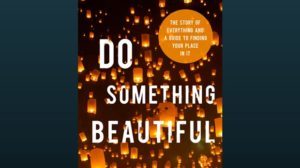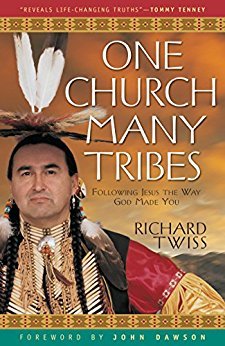Rick Mattson's Blog, page 15
September 3, 2018
Notepad Apologetics, Short Lesson #4: Must We Prove God (part 3)?
This is part three of the “Must We Prove God?” posts, inside the larger series of Notepad Apologetics.
After taking a slight detour in my last post to the relation of God and science, I wish to return to the original question:
Must we prove God to justify belief in God?
The short answer is no. Christian philosophers have taken two main approaches to the question:
1. Evidentialist approach: Evidence and arguments can be marshaled to show that Christian faith is reasonable. This is the approach taken by philosopher William Lane Craig (and many others such as Ravi Zacharias and Timothy Keller).
A simple example: Is it reasonable to believe that my wife Sharon loves me? Sure. I certainly can’t provide scientific or philosophical “proof” for this belief, but it seems foolish of me to withhold belief in Sharon’s love for lack of such academic proof.
2. Basic approach: Start with God and build out from there. God as a starting point seems counter-intuitive to those educated under the predominance of science, which tells us to withhold belief in things that can’t be empirically proven.
Yet, philosopher Alvin Plantinga started a revolution in the philosophy of religion by showing that belief in God is just as basic as believing in one’s own existence. Furthermore, on this “first premise” of God, an entire worldview can be built that is coherent in itself and also provides massive explanatory power regarding the world and all human experience.*
* * *
Again, the two responses to the demand for “proof” of God’s existence are to provide evidence and argumentation to show that belief in God is reasonable, or secondly, just start with God . . . and build out from there.
*See Plantinga’s debate with atheist philosopher Daniel Dennett in Science and Religion: Are They Compatible?
The post Notepad Apologetics, Short Lesson #4: Must We Prove God (part 3)? appeared first on Rick Mattson Outreach Ministry.
Notepad Apologetics, Short Lesson #4: Must We Prove God (part 1)?
This fourth in a series of “notepad” posts is my attempt to navigate quickly to the heart of an issue in apologetics.
Question: Must we prove God to justify our belief in him?
Two common responses from Christians:
“Yes, of course. Even though I can’t provide such proof I’m sure other Christians smarter than me have done so. I’ll trust them to take care of it.”
“I don’t need proof. I have my own experience to rely on; no one can argue with that. I’m happy as is.”
I’d like to suggest a third response: It has to do with evidence, not proof.
That is, there’s plenty of evidence from philosophy, history, science, psychology and all the disciplines that God is there. I wouldn’t call this aggregate of evidence “proof” per se, but rather, a “VGC” — very good case for God.
But what if someone came along and said that mere “evidence” isn’t good enough? You must have proof.
That’s what happened to me one day at lunch with Larry, an atheist science professor. His point was that religion by its nature can’t be proven, and that science is a much better tool for acquiring knowledge because its methods are observable, testable, and repeatable.
How would you respond to Larry? Is he correct that science is superior to religion in discovering truth — the implication being that science makes God irrelevant?
In my next post I’ll share what happened as my conversation with Larry the science professor unfolded.
The post Notepad Apologetics, Short Lesson #4: Must We Prove God (part 1)? appeared first on Rick Mattson Outreach Ministry.
Notepad Apologetics, Short Lesson #4: Must We Prove God (part 2)?
In my prior post I told of meeting up with Larry the science professor for lunch one day, and how he pressed the point on me of the superiority of science over religion in discovering truth and acquiring knowledge.
As an atheist, Larry’s point was clear: God as an explanation is not only inferior to science, God is not needed at all.
Larry is a caring guy and a good listener, rare in my experience of science-only atheists.
I asked him why I should settle for science when I can have both science and God, and thus a more complete picture of the world.
This question challenged Larry’s assumption that God and science are incompatible. Since they contradict, which is preferred? Obviously science, in Larry’s view.
But I was suggesting that the relation of science to God is not an either-or question but a “both-and.”
“For we theists,” I said, “science and the laws of nature are gifts from God to help us discover his beautiful world and offer him gratitude and praise.”
* * *
I’d like to report that Larry then fell on his knees in the restaurant and converted to Christianity. Not so. But to his credit he said he’d consider my proposal of the both-and nature of God and science.
So my closing question is this: Which would you rather have: science only or science and God?
Next post: I return to the main question of whether believers in God must “prove” his existence.
Photo by Caroline Attwood on Unsplash
The post Notepad Apologetics, Short Lesson #4: Must We Prove God (part 2)? appeared first on Rick Mattson Outreach Ministry.
July 21, 2018
Notepad Apologetics, Short Lesson #3: The Problem of Suffering and Evil
This series of posts is designed to move you quickly to the crux of the matter in apologetics issues.
Prior post: Is Christianity a Historic Oppressor?
The problem of suffering and evil alongside a good, all-powerful God who could presumably eliminate suffering and evil — but apparently doesn’t — is an ancient and complex issue.
Of many responses that could be given, here is one (summarized):
Main image: broken world. In conversation, everything can be built around this image. So:
Human beings exercised their free will to rebel against God, causing brokenness in their own hearts and the whole creation.
But God doesn’t remain high and dry. He gets his hands dirty by participating in the mess, dying on a cross, offering healing and reconciliation to all who would receive him.
Now our job is to take his message of love and salvation to the ends of the earth. We are his agents, sent in his name, to repair a broken world.
I often close my comments on this topic with university students by saying this:
“We tend to sit in the ivory tower and complain that God is not doing his job to alleviate suffering. But God is in his heaven wondering why we are not doing our job of alleviating suffering through the Holy Spirit that He’s given us. We’re supposed to ‘go in his name.’ He probably will not just snap his fingers and fix the world. He wants to involve us in the process. Will you join his team, receive his supernatural power, and be part of the solution?”
* * *
The broken world image is associated with what’s called the “free will defense” in apologetics, and is developed more fully in Faith is Like Skydiving, ch 7.
The post Notepad Apologetics, Short Lesson #3: The Problem of Suffering and Evil appeared first on Rick Mattson Outreach Ministry.
Do Something Beautiful: The Story of Everything and a Guide to Finding Your Place In It

I’m looking forward to reading York Moore’s new book!
It’s written for non-church people who have a notion for the good and the beautiful but need to experience the fullness of these qualities through Jesus.
York is a national evangelist for InterVarsity and a friend of mine. His own improbable life story is featured in my recently released Faith Unexpected.
See a Christianity Today interview with York, here.
Order Do Something Beautiful here, on Amazon.
The post Do Something Beautiful: The Story of Everything and a Guide to Finding Your Place In It appeared first on Rick Mattson Outreach Ministry.
June 2, 2018
Notepad Apologetics, Short Lesson #2: Is Christianity a Historic Oppressor?
In my prior post I offered suggestions on the question of religious pluralism.
The present post is a short “notepad” response to the charge that Christianity is guilty of oppressing women and people of color for centuries.
My response:
1. Acknowledge wrong: When Western Christians have imposed themselves on native peoples, held slaves, or held women back from full exercise of their God-given rights, we should humbly acknowledge past mistakes. This is the body of Christ universal (for all times/places) holding itself accountable.
2. Mention positive contributions from Christians: Elsewhere I’ve written* how health care in the west arose from Christian activism, how universities such as Harvard and Yale were founded by Christians, and how contemporary service organizations such as Habitat for Humanity have contributed mightily to the good of society.
Dig into other topics such as the origins of science, western conceptions of legal justice, and the abolition of slavery and you’ll find Christians at the forefront.
3. Disobedient believers (or non-believers) brought harm: Past (and present) actions of faux followers or disobedient followers of Jesus don’t invalidate Christianity. Twisting the Bible into justifying slavery and other forms of oppression is “not okay.” But that’s what was done in the colonial period (and beyond). Visit Native American reservations and read literature written by Native theologians for a taste of what went wrong. **
But after acknowledging mistakes, we must still insist that the “misuse” of Christianity doesn’t make Christianity itself wrong or false.
* * *
Conclusion: There’s plenty to repent of in Christian history. But there’s also plenty of corrections to be made to the flat narrative that blames the ills of society on Christianity. In fact, we Christians should lead the way in uplifting the downtrodden of our world. Jesus did.
Resources
* See my Faith is Like Skydiving , chapter 8, “Christians Behaving Badly.”
** I suggest works by Richard Twiss, Terry LeBlanc, and Randy Woodley. Honestly, I struggle with some of these writings but nevertheless find them extremely challenging and helpful.
The post Notepad Apologetics, Short Lesson #2: Is Christianity a Historic Oppressor? appeared first on Rick Mattson Outreach Ministry.
May 30, 2018
Notepad Apologetics, Short Lesson #1: Are All Religions True?
This series of posts will give you immediate direction for apologetic conversations.
Remember that “apologetics” is the discipline of defending a position, in this case Christianity.
First issue: Religious Pluralism
Objection to Christianity: Christianity has no monopoly on the truth. Other religions are just as valid.
My response:
1. Affirm what I can. What’s true in Islam? Mormonism? Judaism? Answer: belief in God, good morals.
Buddhism, Hinduism? Spirituality. Contemplation.
These are elements that share common ground with Christianity, at least in a general way, and enable me to “affirm what I can.”
2. Go directly to contradictions: The Christian notion of the Trinity, for example, contradicts the monotheism (belief in one unitary God) of Jews and Muslims, the impersonal universe of Buddhists and the polytheism (many gods) of Hindus.
So if the religions contradict, they can’t all be true. In fact, the one view that logically can’t be true is that they’re all true.
3. Image: Religions are like books. Their various “covers” may be similar — mentioning God, faith, love, etc. But if you open the books and read the contents inside, you’ll find they tell radically different stories about reality. See chapter 9 of my Faith is Like Skydiving to see this idea further developed.
So if they can’t all be true, which religion is true? Now we’re into the spade work of digging into the details of each religion and comparing them with each other.
From a Christian perspective the best place to begin is with the identity of Jesus. If he is who he claimed to be and did the things the Bible reports, he deserves our full devotion. If not . . . everything is up for grabs.
* * * * *
Remember, the key to the argument is the many contradictions between religions. That’s where I always go (eventually).
Next post: Is Christianity a Historic Oppressor?
The post Notepad Apologetics, Short Lesson #1: Are All Religions True? appeared first on Rick Mattson Outreach Ministry.
Notepad Apologetics: Short Lesson #1
This series of posts will give you immediate direction for apologetic conversations.
Remember that “apologetics” is the discipline of defending a position, in this case Christianity.
First issue: Religious Pluralism
Objection: Christianity has no monopoly on the truth. Other religions are just as valid.
My response:
Affirm what I can. What’s true in Islam? Mormonism? Judaism? Answer: belief in God, good morals.
Buddhism, Hinduism? Spirituality. Contemplation.
These are elements that share common ground with Christianity, at least in a general way, and enable me to “affirm what I can.”
2. Go directly to contradictions: The Christian notion of the Trinity, for example, contradicts the monotheism (belief in one unitary God) of Jews and Muslims, the pantheism (god is all things) of Buddhists and the polytheism (many gods) of Hindus.
So if the religions contradict, they can’t all be true. In fact, the one view that logically can’t be true is that they’re all true.
3. Image: Religions are like books. Their various “covers” may be similar — mentioning God, faith, love, etc. But if you open the books and read the contents inside, you’ll find they tell radically different stories about reality. See chapter 9 of my Faith is Like Skydiving to see this idea further developed.
So if they can’t all be true, which religion is true? Now we’re into the spade work of digging into the details of each religion and comparing them with each other.
From a Christian perspective the best place to begin is with the identity of Jesus. If he is who he claimed to be and did the things the Bible reports, he deserves our full devotion. If not, then everything is up for grabs.
* * * * *
Remember, the key to the argument is the many contradictions between religions. That’s where I always go (eventually).
The post Notepad Apologetics: Short Lesson #1 appeared first on Rick Mattson Outreach Ministry.
April 8, 2018
The Power of Story: Why we all need to read about Charles Ramirez
 On vacation earlier this year in Phoenix, I bumped into Charles Ramirez at his church. He gave me a warm hug and introduced me to his lovely family.
On vacation earlier this year in Phoenix, I bumped into Charles Ramirez at his church. He gave me a warm hug and introduced me to his lovely family.
I felt as though I already knew Charles pretty well, even though I’d spent only two hours of my life with him. That’s because a year ago I interviewed him in Phoenix and heard his powerful story of coming to faith in Christ.
I recorded that interview, then transcribed it word-for-word onto my computer, a tedious process consisting of Start. Stop. Rewind. Repeat.
Then I wrote up his story for my new book: Faith Unexpected: Real Stories of People Who Found What They Never Imagined.
Charles never imagined that Jesus Christ would be the solution to his many problems. He never saw membership in the family of God in his future. As so often happens, God took him by surprise.
Two lessons from Charles Ramirez
1. Incarnation: The gospel is embedded or “incarnated” in the lives of real persons like Charles who are being transformed from darkness to light, blindness to sight, old self to new.
In our churches, we should hear these stories regularly. If we don’t, something’s not right.
2. Clear preaching: Charles had a stunning conversion experience in the privacy of a very lonely Arizona apartment, a few years ago. But it was the clear biblical teaching of Pastor Keith Bethel at Passages Christian Fellowship of Laveen, AZ where he responded to the call to faith and solidified his commitment to Christ.
This is a reminder to me that in my own role as a public communicator, I need to stick to the basics. Gospel preaching should never be considered out of style.
* * *
Primary audiences for the book:
Our friends who are “on the way” toward God, or just need their dormant faith awakened.
First-time church visitors, Alpha participants, and outreach Bible study members.
Christians who need the encouragement that comes from soaking in the life-changing stories of others, through God’s power.
Click here for Faith Unexpected: Real Stories of People Who Found What They Never Imagined.
The post The Power of Story: Why we all need to read about Charles Ramirez appeared first on Rick Mattson Outreach Ministry.
April 2, 2018
Walking Away from the Faith, Part 5: Biblical Sexuality
This will be an impossible post. To say something about the increasingly complex subject of sexuality in a short blog is, perhaps, foolish. Here is my attempt:
Young Christians such as Mary in my prior post who have friends that identify as queer, or who are queer themselves, often leave the church with a sense of having been betrayed.
Most likely they’ve learned new ideas about identity, gender, and sexuality from the justice/inclusivist vocabulary of secular culture. Anything they’ve learned to the contrary from the Bible seems harsh and arbitrary by comparison.
My plea to the church is to establish a biblical foundation for sexuality in the Trinity and, from there, the notion of man and woman created in the image of the Triune God.
This foundation leads naturally to the Jewish/Christian ideas of covenant marriage, and the “one flesh” union of man and woman as prescribed in Genesis 2:24 (and quoted in the NT by both Jesus and Paul). Here is that text:
That is why a man leaves his father and mother and is united to his wife, and they become one flesh. (NIV)
Rooting sexuality in the Trinity may seem an odd notion to some. But theologically it’s a rich place to begin, much more so than setting up and enforcing a list of biblical “do’s and don’ts” that seem to suggest the church is squeamish, even fearful, about sex.
But will this help?
I’m not suggesting this teaching alone will stop young people from leaving the church, but it does represent the kind of integrative approach to theology that will anchor Christian youth more deeply in the Bible. The Bible, that is, as a source of wise counsel for all parts of life rather than, as sometimes thought, an antiquated rule book.
* * *
Resources
For a technical treatment of Trinity and sexuality, see ch.7 of Stan Grenz, The Social God and the Relational Self: A Trinitarian Theology of the Imago Dei
For a clear and helpful back-and-forth discussion of homosexuality, see Two Views on Homosexuality, the Bible, and the Church by William Loader, Megan K. DeFranza, Wesley Hill, and Stephen R. Holmes.
Photo by Seth Reese on Unsplash
The post Walking Away from the Faith, Part 5: Biblical Sexuality appeared first on Rick Mattson Outreach Ministry.










